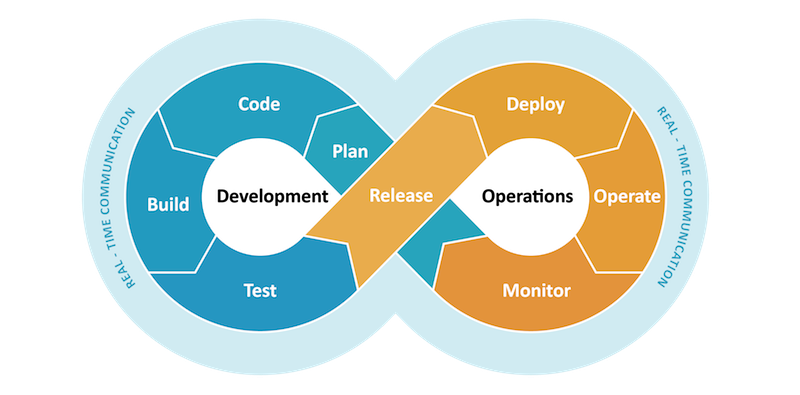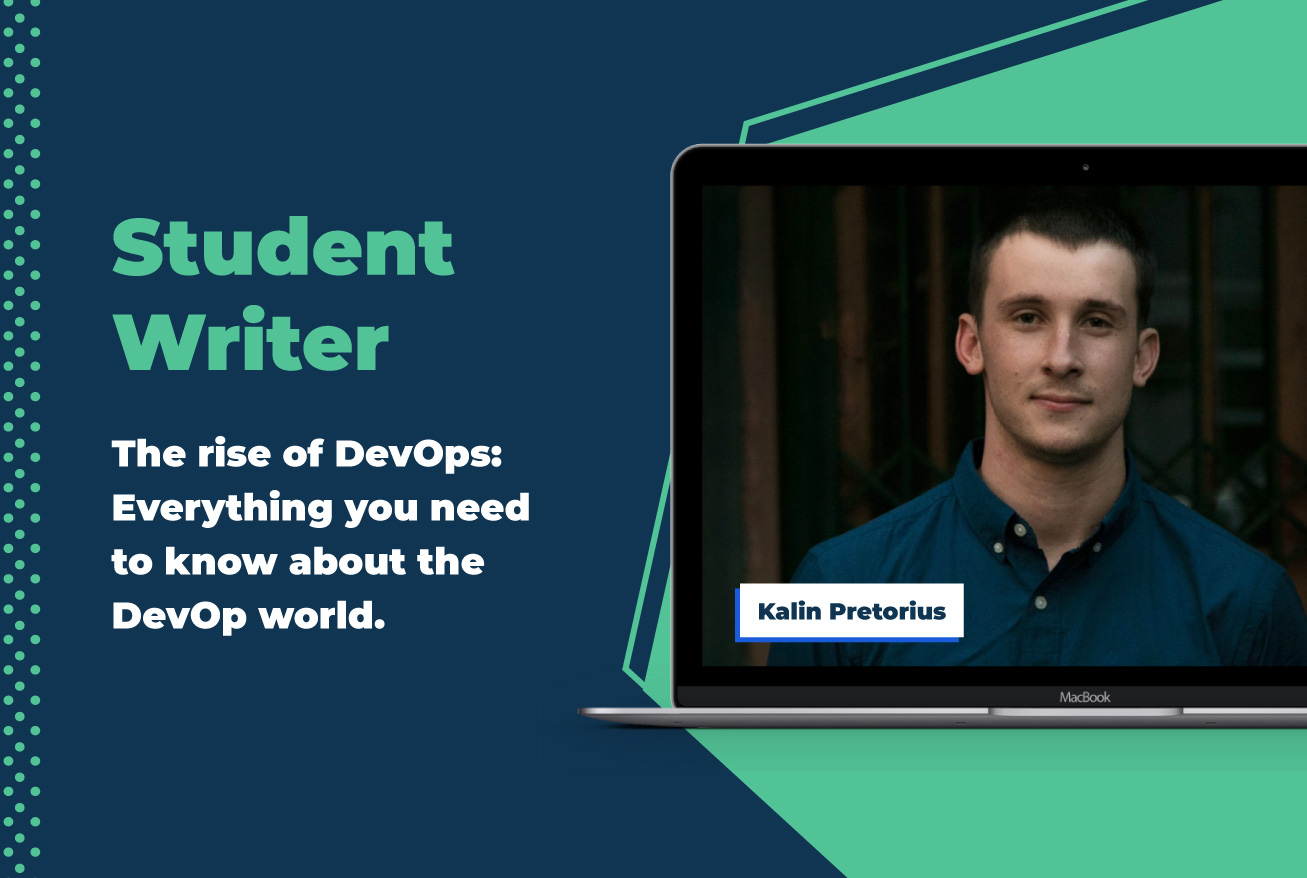Kalin Pretorius is a HyperionDev Software Engineer bootcamp graduate and a former IT Operations specialist who now works as a professional in the DevOp field. He shares his experience of transitioning into the DevOps world as well as his tips and suggestions for those considering a DevOp career.
I first learned about the Software Development Lifecycle in 2020, when I completed my HyperionDev Software Engineer bootcamp. It made me realise how important software development has been in the modern world; it also introduced me to new ways of thinking, and solving problems, and it made me rethink what can be achieved with software development. Since then, I’ve transitioned from a IT Operations focused background to the world of DevOps.
Currently, I’m a DevOps engineer at a leading eCommerce platform in South Africa, and as the eCommerce industry has grown over the past few years (and with the acceleration of online services due to the global pandemic) the demand for skilled DevOps Engineers has increased. I thought I would share everything I’ve learned about DevOps, so that more people discover this burgeoning, rewarding career field for themselves.
Understanding DevOps
DevOps is a culture more than it is a job title. DevOps is essentially a set of practices that combines Software Development and IT operations. The aim is to shorten the software development life cycle and provide continuous delivery of software.
As the demand for Software Engineers increased and Agile Development practices took rise, there was a need to increase efficiency and improve delivery time of software. DevOps culture is all about a shared understanding between developers and operations, and sharing responsibility for the software they build.

The practice of DevOps is nothing but a set of philosophies, practices, and tools that help an organisation to deliver better products faster by facilitating an integration of the development and operations teams. That means increasing transparency, communication, and collaboration across all teams like Development, IT,Operations, and the rest of the company.
Today, DevOps is a rapidly expanding field of software development: since 2016 more than 70% of small- to medium-sized businesses have adopted DevOps Services.
How to thrive in DevOp world
Here are some of the most important skills that a DevOps engineer needs:
- Good communication and collaboration are the most important skills to have. Team work makes the dream work.
- Knowledge of various DevOps tools and technologies. A strong understanding of Linux would be advantageous in any IT field.
- The management of various DevOps practices such as the source code, configuration, and most importantly Continuous Integration/ Delivery (CI/CD).
There is a lot of innovation taking place in the world of DevOps.The most exciting technology at the moment is containers and container orchestration – tools such as Docker and Kubernetes have revolutionised virtualisation technology.
The great thing about a career in DevOps is that anybody with a diverse background of IT can move to a DevOps-focused role. Even if you are experienced in Networking or System Administration, DevOps feels like a step into the future, with Cloud Computing, Automation, and the SDLC becoming your new playground.
Perhaps the best way to thrive in DevOps is by practicing your skills and joining an active community. Your best friends should be Google and Reddit, where you’ll find a multitude of articles, blog posts, tutorials, and learning resources about DevOps. If you’re looking for a fantastic starting point, then a great book I would recommend is “The Phoenix Project”, by Gene Kim.
The fields of IT and software development have been in constant change for decades. DevOps is no different. If you’re looking to get into DevOps, constant learning and experimentation should be your main focuses – expect things to not stay the same, and be ready to evolve as a professional with the times. The only constant is change. It’s a marathon, not a sprint. Keep learning and working, and you’ll find that DevOps is a phenomenally rewarding field to work in.
Interested in writing for us, to share your thoughts, experiences, and expertise with the HyperionDev community? Reach out to us here and we’ll get you published.


